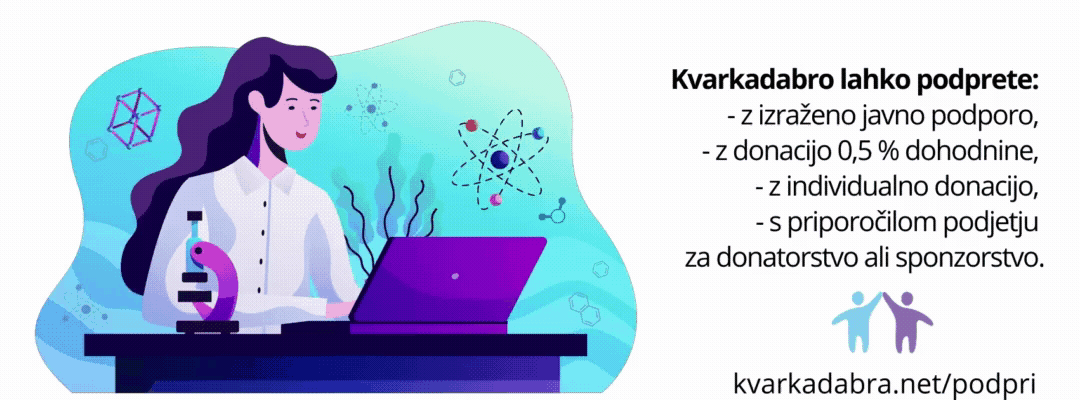Zanimiva analiza stanja na “trgu dela”, ki nikakor ne velja zgolj za akademske službe, ampak je, kot opozarja tudi avtor sestavka, že postala strukturna v pomenu, da sistem brez tovrstne “dualizacije” sploh ne more več normalno delovati. (Hvala Jani J. za povezavo!)
With a constant supply of new low-level drug sellers entering the market and ready to be exploited, drug lords can become increasingly rich without needing to distribute their wealth towards the bottom. You have an expanding mass of rank-and-file “outsiders” ready to forego income for future wealth, and a small core of “insiders” securing incomes largely at the expense of the mass. We can call it a winner-take-all market.
The academic job market is structured in many respects like a drug gang, with an expanding mass of outsiders and a shrinking core of insiders. … Academia is only a somewhat extreme example of this trend, but it affects labour markets virtually everywhere. One of the hot topics in labour market research at the moment is what we call “dualisation”. Dualisation is the strengthening of this divide between insiders in secure, stable employment and outsiders in fixed-term, precarious employment. Academic systems more or less everywhere rely at least to some extent on the existence of a supply of “outsiders” ready to forego wages and employment security in exchange for the prospect of uncertain security, prestige, freedom and reasonably high salaries that tenured positions entail.
… So what you have is an increasing number of brilliant PhD graduates arriving every year into the market hoping to secure a permanent position as a professor and enjoying freedom and high salaries, a bit like the rank-and-file drug dealer hoping to become a drug lord. To achieve that, they are ready to forego the income and security that they could have in other areas of employment by accepting insecure working conditions in the hope of securing jobs that are not expanding at the same rate. Because of the increasing inflow of potential outsiders ready to accept this kind of working conditions, this allows insiders to outsource a number of their tasks onto them, especially teaching, in a context where there are increasing pressures for research and publishing.
… As I can see it, this form of insider/outsider divide exists everywhere and is probably expanding. The interesting thing is that these divides are largely structural in the sense that the system simply couldn’t work without this large supply of outsiders ready to accept any kind of employment contract.
(Celotni tekst: How Academia Resembles a Drug Gang | Alexandre Afonso – Presented on November 19 at the European University Institute’s Academic Careers Observatory Conference.)








He, he, pri nas je še bolje. Država financira mlade "preprodajalce mamil", da lahko stari "šefi" ribarijo v kalnem. Še tisto nekaj malega, kar pravi mafijski šefi razdrobijo med podanike, pri nas velikodušno podeli država. Bolje ne more biti…
Ko že govorimo o nenavadnih pristopih pri financiranju raziskovalcev: a ni nikogar zmotilo to, da je ARRS v času trajanja razpisa za projekte spet spremenil razpisne pogoje – metodologijo ocenjevanja prijav za razpise. A kdo ve, ali je to sploh zakonito? Meni se zdi nenavadno.
Glavna sprememba na prvi pogled je to, da A4 nikjer več ne upoštevajo, se pravi odličnost oz kvaliteto člankov. Ko si se prijavljal, je to nekaj veljajo, sedaj ko ocenjujejo, pa ne več… Pravniki?
A4 se pri projektih že na prejšnjem razpisu ni upošteval drugje kot za mejo za vodjo projekta. Na prijavi se navede do 5 člankov, ki se ti zdijo največji dosežek, o A1-A4 ni nikjer govora (raziskovalcev se ne vrednoti po tem). Do določene mere se še vedno se sicer upošteva A", kjer pa je spet meja absolutna (A" > 100 za 5 točk pri B1). V absolutnem smislu je tudi A" neumen kriterij, ker ga je recimo na področju humanistike veliko lažje preseči kot na drugih področjih. Kot primer: na področju humanistike ima petdeseti "najuspešnejši" raziskovalec A" = 510, na… Beri dalje »
To, kaj se je upoštevalo na prejšnjem razpisu, ni važno. Dejstvo je, da so pravilnik ocenjevanja spremenili med razpisom samim. Kar je še huje – spremenili so tudi pogoje, kdo se sploh lahko prijavi na razpis! Saj so malo zameglili, ampak tistega mejnega pogoja za prijavo A1+A2+A3+A4 = 11 nikjer več ne zasledim. Kar pomeni, da se po prejšnjem pravilniku (veljavnem do 26.11.13) nekdo z 10 točkami ni mogel prijaviti za večji projekt, sedaj pa se je izkazalo, da bi se lahko. Ampak je pač zamudil rok. Da ne govorimo, da je bila prej tale postavka:"Na razpis se ne morejo… Beri dalje »